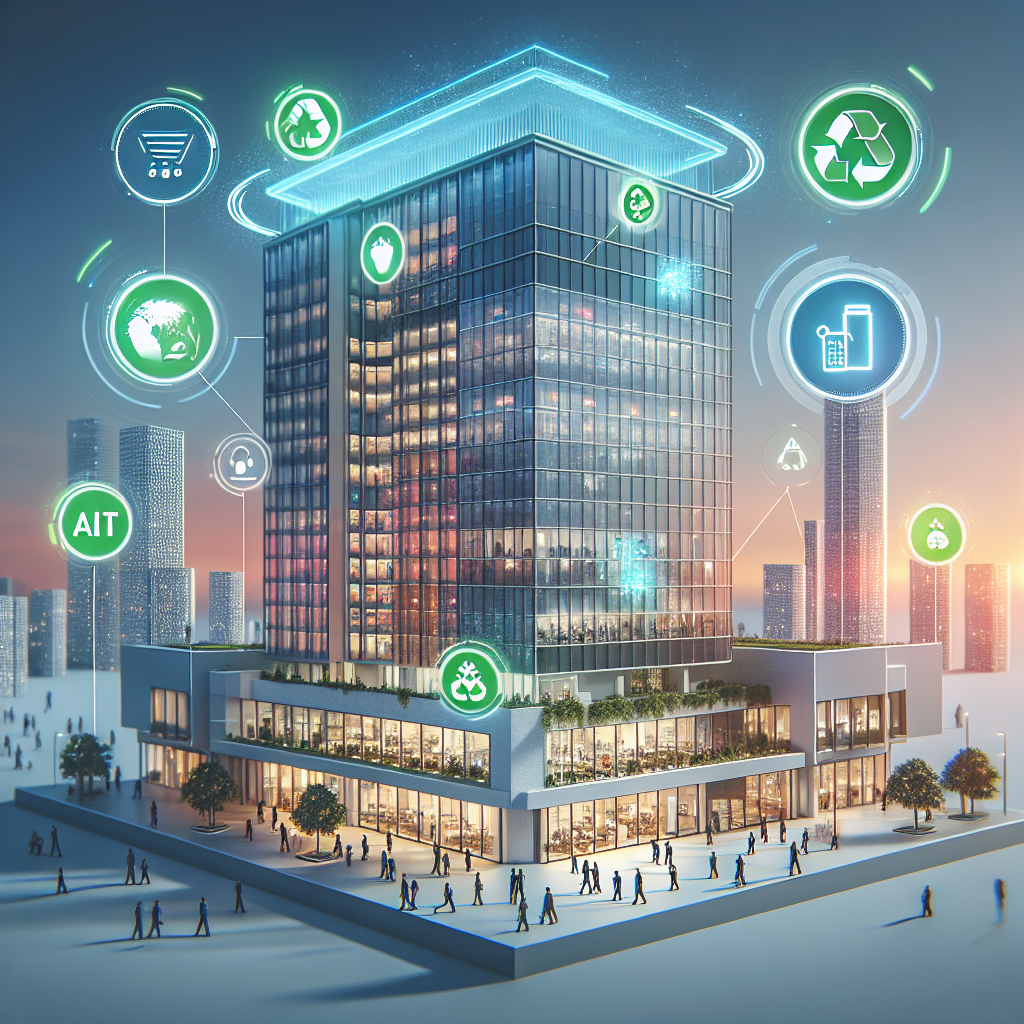“`html
How IoT Sensors and AI are Revolutionizing Smart Buildings
The integration of Internet of Things (IoT) sensors and Artificial Intelligence (AI) technologies is fundamentally transforming the way we design and manage smart buildings. By enhancing efficiency, sustainability, and occupant comfort, these advanced systems are setting new standards in the construction and management of commercial and residential properties.
The Rise of Smart Buildings
As urbanization continues to escalate, the demand for efficient building solutions has never been greater. Smart buildings are equipped with interconnected sensors and systems that leverage real-time data to optimize various processes. IoT sensors play a crucial role in collecting data, while AI processes this information to make informed decisions that enhance building performance.
Defining Smart Buildings
Smart buildings utilize networked technologies and automation systems to manage operations such as:
- Lighting and HVAC control
- Security and surveillance
- Energy consumption
- Water management
Enhancing Efficiency with IoT Sensors
IoT sensors are integral to smart buildings, facilitating real-time monitoring and management of environmental conditions. These sensors can track temperature, humidity, occupancy, and energy utilization, enabling precise adjustments to building systems.
Real-time Data Collection
IoT sensors provide invaluable insights through:
- Automated Lighting Control: Sensors adjust lighting based on occupancy, significantly reducing energy wastage.
- Predictive Maintenance: Monitoring equipment health in real-time can alert managers to potential issues before they escalate, ensuring operational continuity.
AI-Powered Optimization
AI algorithms take the data collected from IoT sensors and analyze it to identify patterns, trends, and opportunities for optimization. The result is a level of smart building management that was previously unattainable.
Improving Building Performance
Key benefits of AI in smart buildings include:
- Energy Management: AI systems dynamically adjust heating, cooling, and lighting based on real-time occupancy data, leading to significant energy savings.
- Enhanced Security: AI helps to analyze video footage and sensor data to detect unusual activities or potential security breaches more efficiently.
Promoting Sustainability
In today’s climate-sensitive world, sustainability is a primary concern for building operators and occupants alike. Smart buildings equipped with IoT and AI contribute to this goal by minimizing waste and utilizing resources more efficiently.
Reducing Carbon Footprint
Smart buildings achieve sustainability through:
- Energy Efficiency: Intelligent systems optimize energy use, directly contributing to lower carbon emissions.
- Water Conservation: IoT sensors monitor water usage and detect leaks, promoting efficient use of water resources.
Enhancing Occupant Comfort
Occupant experience is paramount in the modern building environment. Smart buildings can deliver personalized comfort settings that adapt to individual preferences.
Tailoring Comfort Solutions
Technologies that enhance occupant comfort include:
- Smart Thermostats: These devices learn individual preferences and automatically adjust settings for optimal thermal comfort.
- Air Quality Monitoring: Sensors detect indoor pollutants and automatically adjust ventilation systems to ensure healthy air quality.
The Future of Smart Buildings
The advancements in IoT and AI technologies signal a new era for smart buildings. As systems become increasingly integrated, we can expect even greater levels of efficiency, sustainability, and occupant satisfaction.
Continued Innovation
Future trends may include:
- Integration with Renewable Energy Sources: Smart buildings will be able to utilize solar panels and other renewable technologies more effectively.
- BIM Integration: Building Information Modeling will be enhanced with real-time data analytics, creating a more comprehensive view of building performance.
Conclusion
In conclusion, the combination of IoT sensors and AI is revolutionizing smart buildings, enabling significant improvements in efficiency, sustainability, and occupant comfort. As technology continues to evolve, these intelligent systems will shape the future of building design and management, paving the way for smarter, greener, and more comfortable living and working environments.
“`
